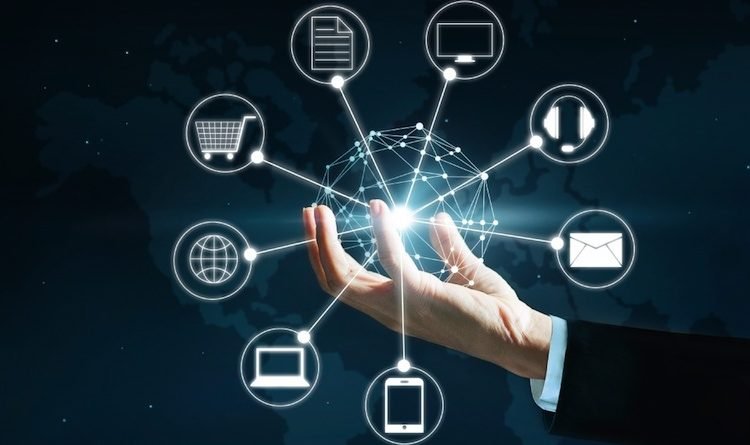The Internet and real-time access to information have changed how we secure products and services. Digital economy cuts across all sectors and dimensions of our social and economic life. It impacts the way we communicate, learn, work, trade, seek medical care, entertain ourselves and even the way we pay for things. Technology is transforming banking, retail… even agriculture.
“Digital economy” refers to the use of information technology to create or adapt, market or consume goods and services. Digital novelties include, e-commerce, virtual education, digital marketing, smartphone apps and collaboration platforms.
3 THINGS ABOUT DIGITAL ECONOMY
More people are using smartphones, tablets, smart watches and bracelets, and other mobile Internet devices to connect to a global environment, anytime and anywhere. Millions around the world can take part in the digital economy to buy or sell goods and services.
According to US economist and statistician Thomas Mesenbourg in his 2001 paper, three components distinguish the digital economy from the regular economy:
- Infrastructure. Businesses have software, hardware and other technological resource, plus specialist human talent.
- E-business. Computer applications, online tools and digital platforms help carry out business processes.
- E-commerce. A familiar concept, e-commerce means the sale of goods and services online.
DIGITAL ECONOMY ADVANTAGES
The digital economy is set to carry more weight in the future, as the “Internet of Things”, Artificial Intelligence (AI), virtual reality, block chain, self-driving cars, and other technology develop. Some advantages it offers are:
- Information. Consumers have more information — not just from manufacturers and firms, but also from other consumers in forums and reviews — to make decisions about goods and services.
- Proximity. Direct customer service channels enable customers to resolve queries and issues with a manufacturer.
- Global presence. With goods and services available consumers anytime and anywhere, companies can enter more markets.
- Security. Digital technology, like strong authentication, makes transactions more secure.
The digital economy is transforming age-old production sectors. Agriculture has already begun to benefit from technological innovations. Mobile apps connect crops to farmers, providing them with real-time updates on quality, soil and irrigation to make management decisions.
GHANA DIGITAL ECONOMY POLICY
Minister for Communications and Digitalisation, Mrs Ursula Owusu-Ekuful (MP) at the stakeholder’s consultation on the draft Ghana Digital Economy Policy at the Ghana Digital Centers shared the following highlights:
BACKGROUND
Following the adoption of the ICT for Accelerated Development (ICT4AD) policy in 2003, Ghana has developed several legislative reforms and a supportive regulatory environment, leading to investments in and adoption of technologies in various sectors of the economy. These initiatives begun our preparations for the digital economy with its attendant opportunities and risks.
Over the last few decades, the policy and infrastructure-related reforms, with telecom services as the main driver, unlocked economic pathways leveraging the mobile phone as a tool for connectivity, information services and digital financial services. These developments have led to the advancement of a local tech entrepreneurial ecosystem, related skills development, digital government platforms and the explosion of data and other emerging technologies, such as Artificial Intelligence, Advanced Data Analytics, IoT, Blockchain metaverse and quantum computing.
A New Policy
It is vital to take cognisance of these developments and set a new policy and strategic direction for the contemporary realities of the digital economy and the evolving fourth industrial revolution (4IR). We need to harness these technologies, tools, and platforms to deliver relevant and efficient services for our benefit as a country.
As the pace of introduction of new technologies accelerates, creating change in societal outcomes beyond the span of existing norms and laws, an agile and adaptive approach to regulation is required. To be effective and relevant, regulation should guard against adverse outcomes, should not be technology and process specific but be focused on the end rather than on the ever-changing means.
A collaborative regulatory environment must be developed to ensure that technology-related services that span multiple sectors receive the required coordinated oversight where multiple regulators are involved.
Local innovation must be at the forefront of the solutions we utilise in all sectors of an increasingly connected society, at the individual, household, community, national and global levels.
A focus on inclusion calls for urgent action via policy, to avert or minimize the effects of potential dislocation and to manage negative externalities from the introduction of disruptive new technologies into society.
While targeting present challenges and foreseeable opportunities, we need to factor in and account for future unknowns resulting from both home-grown and imported technological innovations.
Ultimately this new policy must address the issue of how to increase the contribution of the digital economy to the growth of our national GDP, addressing priorities such as job creation, and unlocking value in high-potential sectors while strengthening inclusion, safeguarding national interests and national security, and augmenting efficiency in public service delivery.
Policy Vision
This policy seeks “to establish an open, secure, hyper-connected and inclusive digital economy that unleashes the innovative genius of digital entrepreneurs across various sectors, creating sustainable jobs for the youth, enabling efficient delivery of government services, and positioning Ghana as a regional digital hub”.
In the fifth and final rolling phase of the ICT4AD 2003 policy which applies from 2019 – 2022, the focus shifts to “sustaining economic development and growth towards improving national prosperity and global competitiveness”.
As we look backwards to what we have achieved so far in ICT development outcomes and set forth a future path, we are also influenced by lessons learned from the COVID-19 pandemic, reflected in the GhanaCARES programme focus on fast-track digitisation to achieve economic transformation.
We are directed and inspired by the President’s imperative on achieving the 2030 Agenda for Sustainable Development and emphasizing the need “to transform the digital economy to promote inclusive growth and prosperity”.
Our commitment to delivering seamless and efficient digital government for citizens is reflected in the Ghana Integrated Digital Transformation (GIDT) Blueprint and its recommendation on anchoring digital government transformation on a robust Common National Digital Architecture (CNDA).
The vision places firm sights on the next stage of digitalisation via harnessing technologies such as big data analytics and artificial intelligence to enhance precision in decision-making and to deliver targeted outcomes including enhancing domestic revenue mobilisation. This is underscored by the Coordinated Plan of Economic and Social Development Policies, 2017 – 2024 on “entrenching ICT, and especially data science, (including analytics), at the centre of the national development agenda”[i].
The policy vision also aligns with continental and regional initiatives such as the AU Digital Transformation Strategy for Africa (2020 – 2030) which stipulates people-centred goals such as ensuring that every African be digitally empowered and with specific minimum target capabilities[ii].
Ultimately, this policy vision speaks to leadership, focus and empowerment in the evolving digital economy through building capabilities and capacity in harnessing emerging technologies of the Fourth Industrial Revolution (4IR) to drive national economic transformation.
5 Policy Pillars
Now the question that follows is what should we prioritize and advance to accelerate the realization of the desired economic and social outcomes. We can’t do everything but must focus on key drivers which will enable us attain our policy goals.
Through the policy formulation effort, we have identified five policy pillars for your consideration: I’m adding this caveat that you are free to propose others if the discussions lend that conclusion.
- Universal Access and Connectivity: emphasizes the continued effort to extend the last mile connectivity for unserved and underserved areas as well as consolidating our existing backbone network infrastructure
- Digital Skills: ensuring that the workforce is empowered to participate in the fast-changing digital economy with an emphasis on capacity, capability and research and development (R&D) to harness novel areas of opportunity
- Digital Entrepreneurship and Innovation: to support the local ecosystem of technology innovators to lead in solutions that address major local challenges across target sectors and towards our ambitions to be a regional digital hub
- Digital Government: to ensure that efficiency, security, trust and responsiveness feature in citizens’ experience of digital service delivery from the government based on standardized enterprise architecture and interoperable systems
- Data and Emerging Technologies: to harness the new and fast-growing national data assets with adequate frameworks to protect and derive value, and provide an enabling regulatory environment for the adoption of new technologies that drive our goals and preserve our values and laws
Desired Policy Outcomes
We have real goals that we expect to result from the delivery of this policy and we hope that during the engagements and consultations over the next few days, we will develop and capture insights and corresponding strategies that bring us closer to these outcomes, namely:
- Participation in the benefits of the digital economy from all sectors and across all population segments.
- Economic growth (GDP) with accelerated development reflected in target social indices including sustainable job creation.
- The government fully harnesses Data, Analytics and other capabilities for efficient, transparent service delivery including improved revenue generation.
- Establish Ghana as a regional digital hub.
BY NAA KORKOI ESSAH, HEAD, PUBLIC RELATIONS , MINISTRY OF COMMUNICATION AND DIGITIZATION































































